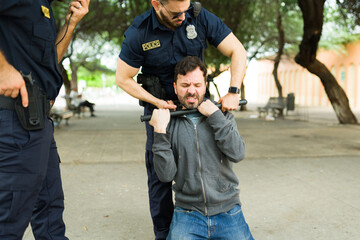
Resisting arrest is a serious offense that can get you into trouble in New York. Preventing or attempting to prevent a law enforcement officer from carrying out their duties is never a good idea. If you are facing charges related to resisting arrest it is important that you understand the charges being brought against you, the penalties associated with a conviction, and the possible defenses you can employ in your case. Reach out to a skilled Rockland County criminal defense attorney for more information today.
Resisting arrest is defined under New York Penal Law § 205.30 which states the following.
“A person is guilty of resisting arrest when he intentionally prevents
or attempts to prevent a police officer or peace officer from effecting
an authorized arrest of himself or another person.”
Breaking down this law, the intent of the individual is crucial. To be considered guilty of resisting arrest a person must consciously and purposefully attempt to prevent an officer from performing their duties.
The arrest being authorized is also a critical component of the offense. An arrest is only authorized when the police officer has a valid arrest warrant or reasonable cause to believe that the individual being arrested has committed a crime.
Under New York law, resisting arrest is a class A misdemeanor. However, it is important to note that according to NY State Assembly Bill 2025-A4546, a second resisting arrest offense within 5 years of the first will be charged as a class E felony.
When resisting arrest is charged as a class A misdemeanor in New York, you can expect the following penalties.
As a class E felony, resisting arrest can result in the following consequences.
It is also important to recognize that resisting arrest can lead to additional charges. For example, if you injured the police officer during the course of the arrest you could face charges for assault on a police officer which is a class C violent felony.
There are several defensive strategies you can implement to fight your resisting arrest charges in New York. Work with your attorney to determine which of the following is best suited for your case.
Your lawyer will evaluate the details of your circumstances to determine what the most effective defense will be. Reach out to a skilled legal professional to begin building your case today.
© 2025 The Law Office of Kevin T. Conway. All rights reserved.